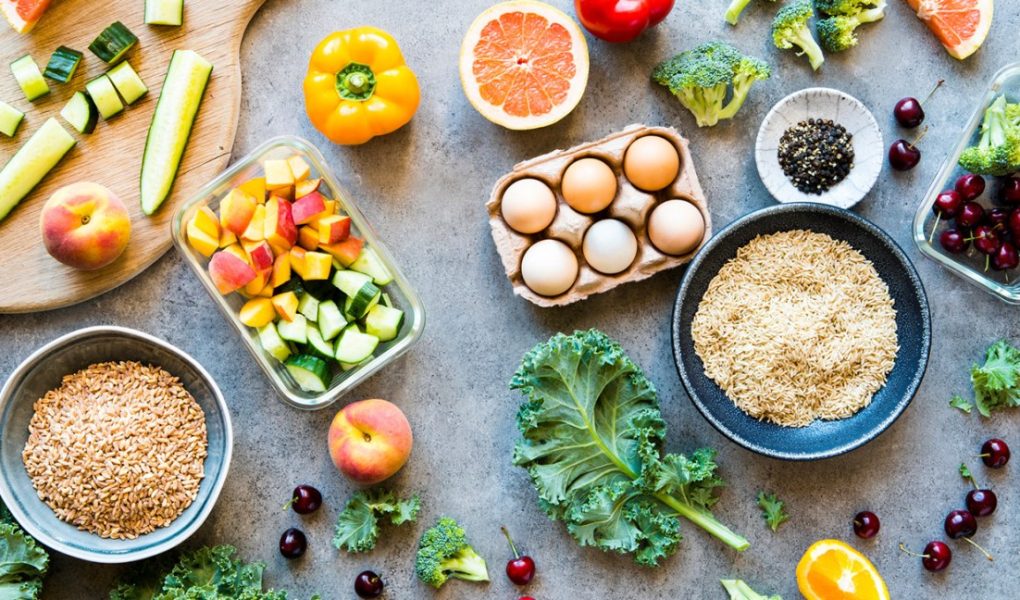A plant-based diet consists mainly of: fruits vegetables nuts seeds whole grains legumes. For some people, this is an exclusively plant-based diet, but it doesn’t have to be so. Others may want to include small amounts of animal products (sometimes including meat) in addition to these staples.
The science is pretty clear that a predominantly plant-based diet is best for overall health, but, again, that doesn’t mean it has to be exclusively plant-based. The good news is that all forms of plant-based eating -vegetarian, vegan – are healthier eating patterns than the standard omnivore diet. Plus, there is a direct link between plant-based diets and mental health.

Just as importantly, a plant-based diet is not only positive for human health. It also keeps our planet healthy. In short, the way we grow food now is not sustainable-especially for a population that is expected to grow to 9 billion people by 2050.
Benefits of a plant-based diet
Plants contain many nutrients, including but not limited to: fiber antioxidants vitamins + minerals healthy fatty acids. Not surprisingly, eating more of these foods will have a lasting impact on your health. Here are just a few of the many benefits of a plant-based diet.
Skin Health
Studies have shown that a plant-based diet can help prevent dull skin and fine lines. The review found that a plant-based diet helped “lengthen telomeres and reverse the aging process of DNA. This mechanism plays a role in longevity and, in particular, in skin aging.A plant-based diet is also rich in antioxidants beneficial to the skin, including: Vitamin E Vitamin C Coenzyme Q10 chlorophyll Zeaxanthin. A diet rich in these nutrients has been shown to prevent fine lines and wrinkles and improve skin hydration, elasticity and firmness.
Intestinal health
Plant foods such as whole grains, vegetables, legumes and fruits are also rich in fiber, which helps lower cholesterol and improve intestinal health. Some plant fibers, known as prebiotics, produce short-chain fatty acids when fermented in the intestines. These acids can improve digestion. This helps maintain a healthier gut barrier to combat pathogens that can otherwise cause imbalances in health.
Requires fewer natural resources
Delivering crops to the feed mill and animals to meat packing plants requires additional fuel and energy. Similarly, the simple operation of these feed mills, livestock farms, and meat packing plants requires energy resources. In contrast, whole-crop production requires less equipment from start to finish.
All in all, intensive livestock production is a very inefficient process. Moreover, the health benefits of reducing animal products and increasing the amount of plant-based foods in your diet are well documented in research.
As you can see, a plant-based diet has a number of benefits for your skin, digestion and the environment. Here’s how you can gradually transition to such a diet:
- Replacing cow’s milk with plant-based milk such as almond, soy or oat milk;
- Replacing refined grain products with whole-grain ones;
- Adding plant-based proteins (such as beans and lentils) to meals instead of chicken, beef, or pork.

Is diet or exercise more important for health? Diet is more important. But that doesn’t mean that you can avoid exercise. It is better to combine these two methods to improve your health.
Vegetarianism and Raw Foods
In some cases, small deviations from vegan diets are helpful. For example, if you have hypertension, it is better to give preference to a dairy-plant diet. Athletes are not forbidden to enrich the diet periodically with low-fat boiled meat or eggs. The main thing is to focus on plant foods. Such a diet is characteristic of only three techniques.
- Vegetarianism is the mildest option, which implies giving up meat and fish. Everything else can be eaten.
- Veganism – a complete rejection of animal products: meat, fish, eggs, dairy products, honey, margarine, butter, gelatin. Veganism is not considered a dietary system, but a way of life. Clothing, shoes and accessories with materials of animal origin are also forbidden for vegans.
- Raw food is the strictest methodology in which food must be consumed in its natural form. Chopping, mixing and heat treating food is not welcome. Many experts believe that natural nutrition is the healthiest for the body.
It is worth sticking to a plant-based diet on a permanent basis for people who want to get rid of chronic diseases – for diabetics and hypertensive people it is very useful. But even in these cases, you can first try out the variations, and then already decide and finally implement new eating habits. If you want to know more about a healthy lifestyle, you should find out: what is total health diet? You can also find a lot of useful information about different diets here.



